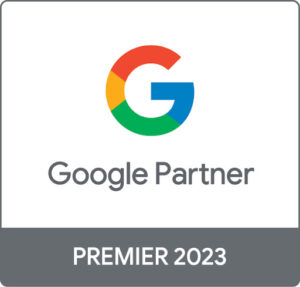Fundamentally, ‘good SEO’ is all about great content, a well-optimised website and a relevant backlink profile from powerful domains.
Simple enough, right? Well, not quite…
Our principles of a great SEO strategy
Our philosophy to SEO is simple – understand what your customers want, find out what they’re asking Google and create truly insightful content that satisfies their search queries.
- Make sure Google can crawl and index your website quickly, easily and without technical issue.
- Understand who your audience are and what they value.
- Research keywords to identify the types of queries your audience are searching for.
- Give your website a clean and logical structure and focus on providing great user experience.
- Map out your keywords to ensure every page is optimised and has its own unique focus.
- Create valuable content based around what your audience are asking search engines.
- Promote yourself out to niches as long as it’s valuable and relevant to the audience.
- Focus on building your brand’s reputation within your marketplace as your top priority.
We split our SEO campaigns into 4 core elements – website content (language, text, UI, UX, media), website architecture (code, performance, hierarchy), backlinks (incoming, outgoing, quality, quantity) and social media performance (persona, relevance, community).
Breaking down our holistic approach to search marketing
SEO is about answering the questions that your audience are asking search engines about your business, your industry and what your business offers.
Find out everything your customers are asking and create well-optimised, easy to digest and authoritative content that answers these questions.
Promote these rich pages to influencers to gain awareness and links that drive authority, and therefore increase search engine rankings. Overall, though, you need to make your website the place to go within your industry.
- Make sure all pages are optimised for the right keywords.
- Make sure all related pages link to each other to spread out the link equity and page authority.
- Bring your detail pages to the top domain level.
- No Follow link to pages that you don’t want to share link equity with.
- No Index pages that you need on your site but don’t need Google to index.
- Revitalise and optimise old pages that don’t rank particularly well.
- Make sure each page is optimised for its own selection of keywords – no duplication.
- Stop buying links, don’t reciprocal link to other sites – no value here anymore.
It’s all about the long term plan
SEO is hard – but by far it’s one of the best acquisition channels in digital and should therefore have the most attention within your digital marketing strategy. SEO requires intense attention to detail, constant monitoring, consistent improvements, testing, and more testing.
But, as is often so frustrating for most online businesses, SEO takes time. We suggest to our clients that they’ll see results, and fantastic results at that, after 4 – 6 months of working with us.
Long term SEO (as a concept) is totally justifiable though, especially when you think about how much work is required to really nail the organic search results and drive through traffic that converts into customers.
From identifying and fixing a website’s technical issues to optimising its information hierarchy, creating and actioning a fantastic content marketing strategy, link building from natural, powerful domains to promoting your best content through social media marketing.
Be honest and ethical
If your SEO strategy sounds a bit dodgy, it is dodgy. Search engines like Google are smarter than ever, and it’s within their best interest to serve their users with the very best results for their queries. So catching and punishing websites that game the system has become commonplace in 2017.
In short, there is no silver bullet in SEO. That’s why we’re committed to honest and ethical SEO tactics – long term strategies that engage users, answer their search queries and offer them the best experience possible.
By focusing on offering outstanding user experience combined with highly-optimised web pages and promoting those pages to the powerful niches, our clients websites, naturally, rise above their competitors in the organic search results.
As Google and other search engines continue to evolve and launch new algorithms (up to 500 times per year), the need for long term, ethical and honest SEO strategies is more important than ever. Our purpose as SEO experts is to keep our clients on top and continue to rise up the organic rankings with high-quality, more meaningful SEO campaigns.
Each time Google releases a new algorithm update, we get excited because we know that our clients can safely sit back and watch their unethical competitors drop down the rankings while their websites improve.
Don’t just look natural, be natural
True authenticity is impossible to fake. If your SEO strategy is centred around gaming the system – one way or another, you’ll get found out and your website will get punished. It’s as simple as that. If you have to argue that a link is good or useful, it’s probably not.
Your ultimate focus should be to engage with your audience and offer the very best on-site experience possible. Understand who your audience are and what they want, then focus all your efforts on giving it to them. In time, and with the right SEO strategy, your business will reap the rewards with high-performing rankings, and a shed load of new organic traffic.
Constantly pursue excellence and differentiation – producing the same old content as everyone else just isn’t going to cut it in 2017.
There’s no reason why you shouldn’t take risks in SEO – just as long as you stick by the guidelines set by Google and you’re measuring your efforts. If you fail, that’s fine as long as you learn from it.
Understand why a particular piece of content didn’t perform as well as you thought it would. Identify where your efforts are most effective and produce the best SEO results for your website. Realise that earning links from powerful sites are the result, and not the goal of your SEO campaign.
Solve other people’s problems
Blimey, I’ve said this enough already but it’s so important I feel it deserves its own subheading – find out what others are asking Google (what their problems are) and aim to solve their problems with the best possible answers.
Make your website the place to go for your industry, make it work for your business, and make it more meaningful for your visitors.
Think your customers have a problem that needs solving? Perhaps you’ve identified a huge knowledge gap online? You have the knowledge – you’re the experts within your industry and you can bet your customers will go to Google for answers.
That’s why you absolutely have to focus on solving other people’s problems. More clicks equals more eyes on your brand, which will naturally (over time) lead to more enquiries and sales for your business.
Consumers use search engines whenever they want to find something out, and whether that’s transactional, informational or navigational – if your website attracts more relevant visitors because it appears at the top of Google for a wider range of keywords, then it’ll drive more traffic to your brand.
Test, learn, measure…
To truly nail a great SEO strategy and dominate the search rankings, you need to know what works best when ranking websites in Google. I love SEO because it’s an industry that’s always changing – like most disciplines in tech, the rules, best practices and ways to get ahead of the competition constantly evolve.
But how on earth are you supposed to know what works? Google doesn’t give you the playbook on how to get your website to that top spot, and everyone has their own opinions and theories on what’s most effective.
The only real way to learn SEO is by constantly testing what’s most effective, monitoring the results and refining your strategy based on what works for your website. Use tools like Google Analytics, Google Tag Manager and keyword tracking (like Ahrefs, RankSonic or SEMRush) to evaluate the performance of one campaign to the next.
But most importantly … make sure you only test one thing at a time – too many simultaneous tests and you’ll struggle to understand what’s actually working!









